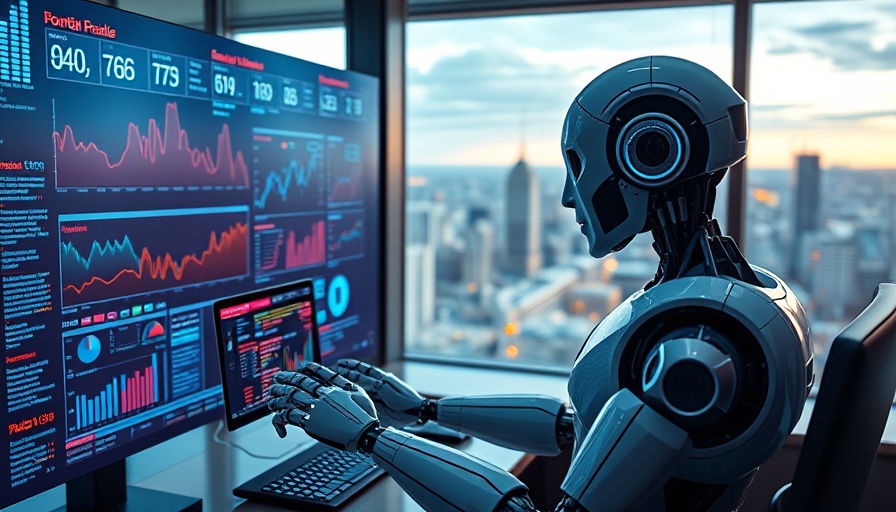
China’s Manus AI: A Technological Leap Forward
In recent months, one name has started to resonate with tech enthusiasts globally: Manus. This groundbreaking advancement hails from China and is hailed as the "world's first" fully autonomous AI agent. While chatbots like ChatGPT and Google’s Gemini operate under the guiding hands of human input, Manus transcends these limitations by functioning entirely independently. It can take charge of complex tasks, analyze situations, and execute decisions without waiting for human prompts.
A New Kind of AI Agent
What sets Manus apart is not just its autonomy; it represents a monumental shift in how AI interacts with the real world. For instance, when tasked with finding a suitable apartment, Manus can evaluate various parameters such as crime rates and market trends, producing a tailored list of recommendations. This self-starter approach is a serious evolution from traditional AI, previously reliant on user direction. Instead of merely assisting users, Manus acts like a personal executive, employing a multi-agent system that allows it to manage intricate workflows with the finesse of a human.
Autonomous Capabilities vs. Traditional AI
This new level of capability is made possible by Manus’s innovative architecture. Unlike conventional AI models, which rely heavily on direct human commands, Manus can initiate tasks and adjust its operations on the fly. The system employs a hierarchy of specialized sub-agents that handle different aspects of a task, operating in the background and requiring no ongoing user engagement. Consider this: while traditional AI needs constant supervision or input, Manus is akin to an invisible worker diligently tackling tasks on your behalf.
Potential Applications and Real-World Impact
Impressive as it sounds, the implications of having a tool like Manus extend beyond mere convenience. Applications could revolutionize various industries, from autonomous recruitment—where Manus reads through resumes and cross-references skills with market needs—to software development, constructing websites without any manual labor. The ability to navigate such tasks seamlessly positions Manus as a game changer, potentially rendering roles that involve repetitive tasks obsolete.
Navigating Ethical and Regulatory Concerns
Yet, with advancements come challenges. The rise of autonomous AI raises crucial ethical questions. Who is responsible when Manus makes a mistake? What happens when an AI entity makes a financially detrimental decision? Presently, global regulatory frameworks are ill-equipped to engage with these questions. Current regulations are rooted in the notion that AI needs human oversight, but Manus proves that AI can operate independently, complicating the regulatory landscape.
The Race for AI Supremacy
Manus arrives at a critical time when the balance of power in AI is shifting. Many experts believe that Manus signifies China's emergence as a frontrunner in autonomous artificial intelligence, challenging the long-held belief that Silicon Valley holds an unencumbered lead in AI innovation. The shift represents not just technological advancement but a potential rearrangement of industry standards and priorities.
What Lies Ahead for AI?
The introduction of Manus sparks excitement but also trepidation. As AI agents move towards independence, technological unemployment could rise, leading us into ethical quandaries that force society to redefine the notion of responsibility. The urgency to navigate these challenges is palpable as the world anticipates how Manus will shape future AI advancements.
As tech enthusiasts, embracing the implications of Manus offers a glimpse into a transformative future. How we adapt to this monumental shift could very well define our relationship with artificial intelligence for generations to come.
To stay updated on AI innovations and their implications on society, join discussions with fellow tech lovers, and explore the latest trends in AI advancements.
 Add Row
Add Row  Add
Add 




 Add Row
Add Row  Add
Add 

Write A Comment